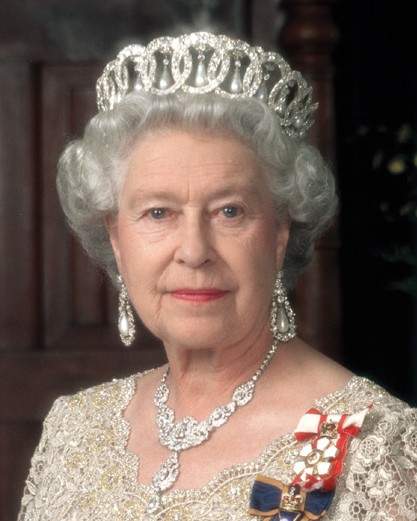Britain's Queen Elizabeth II is due to begin a state visit to the United Arab Emirates (UAE) and the Gulf state of Oman Wednesday, aimed at strengthening historic ties with the Gulf region, Buckingham Palace said Wednesday, DPA reported.
The queen, 85, is accompanied by her husband, Prince Philip, 89, on the five-day tour. British Foreign Secretary William Hague and Prince Andrew, the queen's son and Britain's special representative for trade and investment, will also be part of the delegation for the first leg of the tour.
The queen and Prince Philip paid their first, and last, state visit to the United Arab Emirates, Oman and other Gulf states, in 1979. They were due to arrive in Abu Dhabi later Wednesday, and travel on to Oman later in the week, where Sultan Qaboos bin Said is celebrating his 40th year in power.
The new Conservative-led British government has made it clear that it is keen to reinvigorate its relationship with states in the Gulf region, underlined with the launch of a so-called Gulf Initiative in the summer.
Last week, British Prime Minister David Cameron expressed his "delight" at the queen's tour, saying that he would himself visit the UAE early in 2011.
"We are rebuilding our relationships with countries of the Gulf. They feel strong links with Britain, but they also feel they have been sidelined in recent years," said Cameron, implying that the previous Labour government had neglected ties with Gulf states.
In a Foreign Office statement last month, Hague emphasized Britain's intention to develop relations with the region, saying that Britain wanted to be the Gulf states' "commercial partner of choice."
But he also expressed concern at growing competition. "It concerns me that the UK appears to be losing market share, both to established competition, such as the USA, France and Germany, and to emerging markets like India, China and Korea," said Hague.
Britain has long-standing historical ties with the area's Arab nations and shared links across a range of topics from defence, trade and climate change to culture, education and health.
Although the queen, on account of her role as head of state, will not directly participate in talks on commercial and trade matters, she is nonetheless seen as a "great ambassador for Britain," according to diplomats.
The Gulf states are Britain's seventh-largest export market, according to officials. Britain is the largest foreign investor in Oman, with exports dominated by security equipment, engineering products, industrial equipment and educational supplies.
Last month, the queen hosted a state visit to Britain by the Emir of Qatar, a major investor in the property and entertainment sector in Britain.
After her arrival in Abu Dhabi later Wednesday, the queen was due to visit the Sheikh Zayed Grand Mosque and pay her respects at the tomb of the late Sheikh Zayed bin Sultan Al Nahyan, the founding father and first president of the UAE.
The queen will be given an official welcome from Abu Dhabi ruler Sheikh Khalifa, and attend a ceremony to start the construction if the Zayed National Museum on Saadiyat Island, where the design plans will be unveiled for the first time.
The royal party will travel to Muscat, the Omani capital, late Thursday - but without Hague and Prince Andrew. During the two-day visit, the queen will be present at a spectacular Royal Cavalry Horse Show on Saturday to mark the 40-year-rule of Sultan Qaboos.
The royal couple is due to return to London on Sunday.
When the queen and her husband last visited the Gulf states in 1979, they flew aboard a Concorde supersonic aircraft to Kuwait, from where they proceeded on the royal yacht Britannia for an extended tour of the region. Both Concorde and the royal yacht have since gone out of service.
Britain's Queen Elizabeth to visit Gulf region to promote ties
Britain's Queen Elizabeth II is due to begin a state visit to the United Arab Emirates (UAE) and the Gulf state of Oman Wednesday, aimed at strengthening historic ties with the Gulf region, Buckingham Palace said Wednesday.






